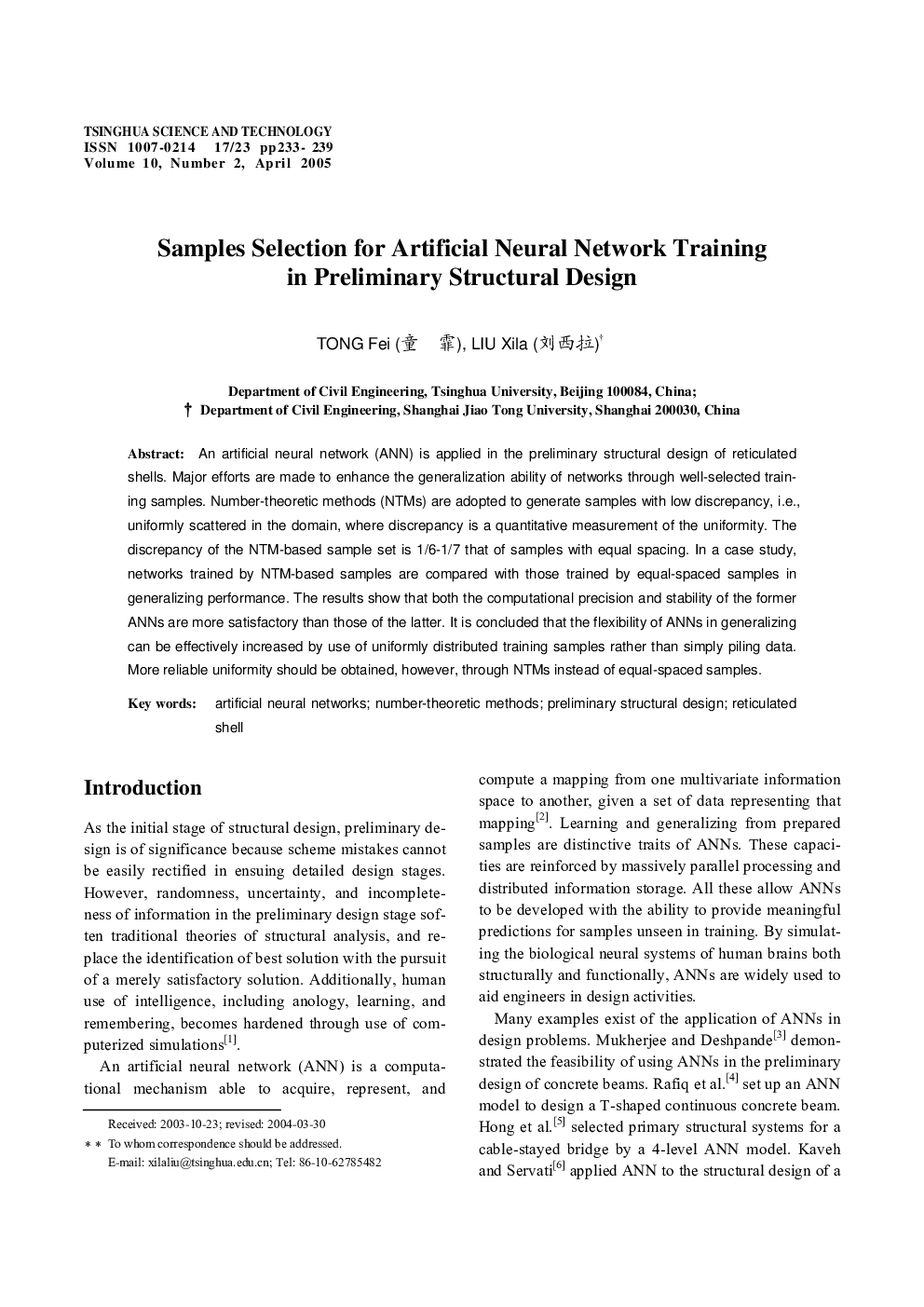| Article ID | Journal | Published Year | Pages | File Type |
|---|---|---|---|---|
| 10429207 | Tsinghua Science & Technology | 2005 | 7 Pages |
Abstract
An artificial neural network (ANN) is applied in the preliminary structural design of reticulated shells. Major efforts are made to enhance the generalization ability of networks through well-selected training samples. Number-theoretic methods (NTMs) are adopted to generate samples with low discrepancy, i.e., uniformly scattered in the domain, where discrepancy is a quantitative measurement of the uniformity. The discrepancy of the NTM-based sample set is 1/6-1/7 that of samples with equal spacing. In a case study, networks trained by NTM-based samples are compared with those trained by equal-spaced samples in generalizing performance. The results show that both the computational precision and stability of the former ANNs are more satisfactory than those of the latter. It is concluded that the flexibility of ANNs in generalizing can be effectively increased by use of uniformly distributed training samples rather than simply piling data. More reliable uniformity should be obtained, however, through NTMs instead of equal-spaced samples.
Related Topics
Physical Sciences and Engineering
Engineering
Engineering (General)
Authors
Tong (ç«¥ é), Liu (å西æ),
